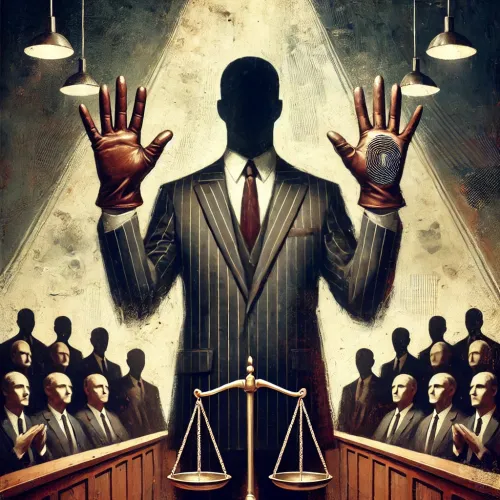The concept of autonomy in decision-making within the jury system is a cornerstone of democratic legal proceedings. It grants jurors the independence to assess evidence, interpret legal standards, and deliver verdicts that align with their understanding and conscience. This autonomy is particularly significant in the context of jury nullification, where jurors may choose to acquit a defendant despite clear evidence of legal guilt, based on the belief that the law itself is unjust or has been misapplied.
Historical Context
The roots of juror autonomy can be traced back to landmark cases that have shaped the legal landscape. In the 1670 trial of William Penn, jurors refused to convict Penn for unlawful assembly, despite clear evidence and judicial pressure, asserting their right to deliver a verdict based on conscience. Similarly, in the 1735 trial of John Peter Zenger, jurors acquitted Zenger of libel against the colonial governor, emphasizing the importance of free expression and the jury's role in protecting individual rights. These cases underscore the historical significance of juror autonomy as a safeguard against oppressive laws and governmental overreach.
Legal Foundations
The legal system acknowledges the power of jurors to exercise autonomy, though it often refrains from explicitly endorsing jury nullification. In the 1895 Supreme Court case Sparf v. United States, the Court held that while jurors have the power to nullify, judges are not required to inform them of this right. This decision reflects the delicate balance between acknowledging juror autonomy and maintaining judicial authority. Subsequent rulings, such as United States v. Moylan (1969) and United States v. Dougherty (1972), have affirmed the de facto power of juries to nullify but upheld the discretion of courts to withhold explicit instructions regarding this power.
Ethical and Practical Implications
The exercise of autonomy in decision-making by jurors carries both ethical and practical implications. On one hand, it empowers citizens to act as a check on unjust laws, reflecting community values and moral judgments within the legal process. This function is particularly relevant in cases involving laws perceived as discriminatory or outdated. On the other hand, juror autonomy can lead to inconsistencies in verdicts, as decisions may be influenced by individual biases or emotions rather than uniform legal standards. This potential for unpredictability poses challenges to the principle of legal certainty and the equitable application of laws.
Judicial Perspectives
Courts have exhibited caution in addressing juror autonomy, particularly concerning jury nullification. Judges typically instruct jurors to adhere strictly to the law as presented, emphasizing their role as fact-finders rather than lawmakers. In some instances, courts have removed jurors who openly express intent to nullify, viewing such actions as a deviation from their legal duties. For example, in United States v. Thomas (1997), the Second Circuit Court of Appeals upheld the dismissal of a juror who was suspected of intending to nullify the law.
Contemporary Relevance
In modern times, the principle of autonomy in jury decision-making continues to evoke debate. Advocacy groups, such as the Fully Informed Jury Association (FIJA), campaign for jurors to be informed of their rights to judge both the facts and the justice of the law. They argue that fully informed jurors are essential to a just legal system, capable of mitigating the effects of unjust laws. Conversely, critics caution that promoting jury nullification could undermine the rule of law and lead to verdicts based on personal prejudices rather than objective legal criteria.
Autonomy in decision-making is a defining feature of the jury system, embodying the democratic principle that justice should reflect the conscience of the community. While it empowers jurors to act against laws they perceive as unjust, it also introduces complexities regarding legal consistency and the potential for subjective bias. The ongoing discourse surrounding juror autonomy and jury nullification highlights the need for a nuanced understanding of the jury's role in balancing the rigid application of law with considerations of equity and moral judgment. As legal systems evolve, the challenge remains to uphold the integrity of the law while respecting the autonomous role of the jury in the pursuit of justice.



